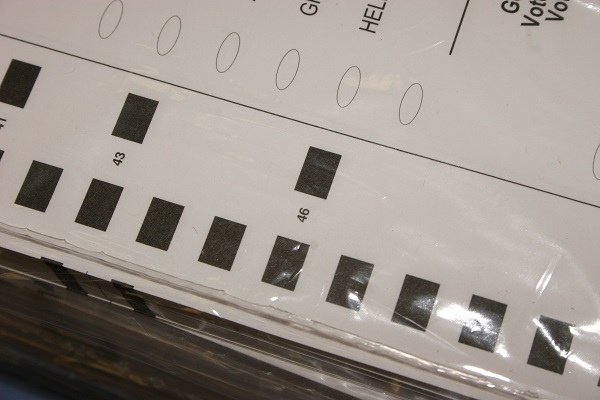 Voter eligibility and disenfranchisement is a subject this blog has looked at before, especially as it relates to felons. Different states have different levels of participation allowed by felons, with Minnesota falling somewhere in the middle by allowing felons to vote again after completing their entire sentence including probation. With this limitation in mind, Minnesota Statute §204C.12 states that election judges must give ballots to voters who have been challenged as ineligible to vote, but who self-certify that they are in fact eligible. Recent local news presents the scenario where the polling roster might have someone marked as challenged due to status as a felon, as well as ward of the state, or non-citizen status. If the potential voter certifies that they are none of those things, election judges are being told that they should allow the person to vote.
Voter eligibility and disenfranchisement is a subject this blog has looked at before, especially as it relates to felons. Different states have different levels of participation allowed by felons, with Minnesota falling somewhere in the middle by allowing felons to vote again after completing their entire sentence including probation. With this limitation in mind, Minnesota Statute §204C.12 states that election judges must give ballots to voters who have been challenged as ineligible to vote, but who self-certify that they are in fact eligible. Recent local news presents the scenario where the polling roster might have someone marked as challenged due to status as a felon, as well as ward of the state, or non-citizen status. If the potential voter certifies that they are none of those things, election judges are being told that they should allow the person to vote.
In a case currently filed in the Second Judicial District, the Minnesota Voter Alliance asserts that the polling roster should be taken as the final word, and that the election judges should not be allowed to override it by letting the person vote. They have encouraged election judges to refuse to follow the rule, claiming there is more election fraud in Minnesota than is officially acknowledged. The Minnesota Secretary of State’s office says that refusing to apply the rule is not an option, and that only a court has the authority to challenge the statute. (See how the Secretary of State’s 2016 Election Judge Guide explains how the situation should be handled.) In the delicate operation of conducting democratically sound elections, election fraud and voter disenfranchisement are the two opposite sides of the same coin. State officials have asserted that the danger of election fraud is minimal. Other groups assert that the real danger is not fraud, but voter suppression. A judge will rule on this issue today (Friday), at least for purposes of the upcoming election. It could easily find its way to the Court of Appeals or the Minnesota Legislature, especially if there are close election results.